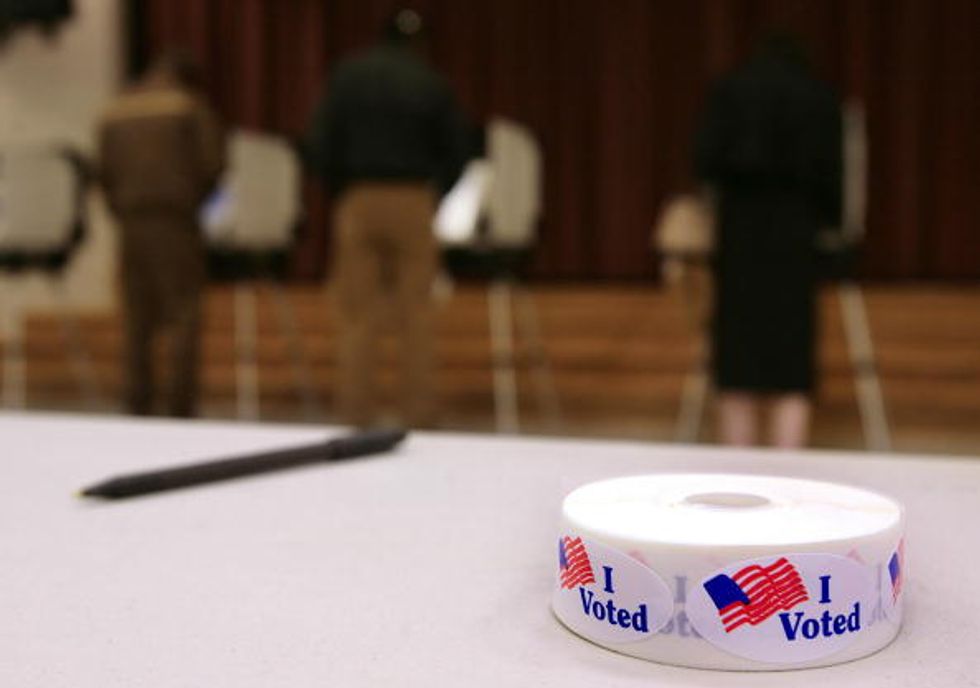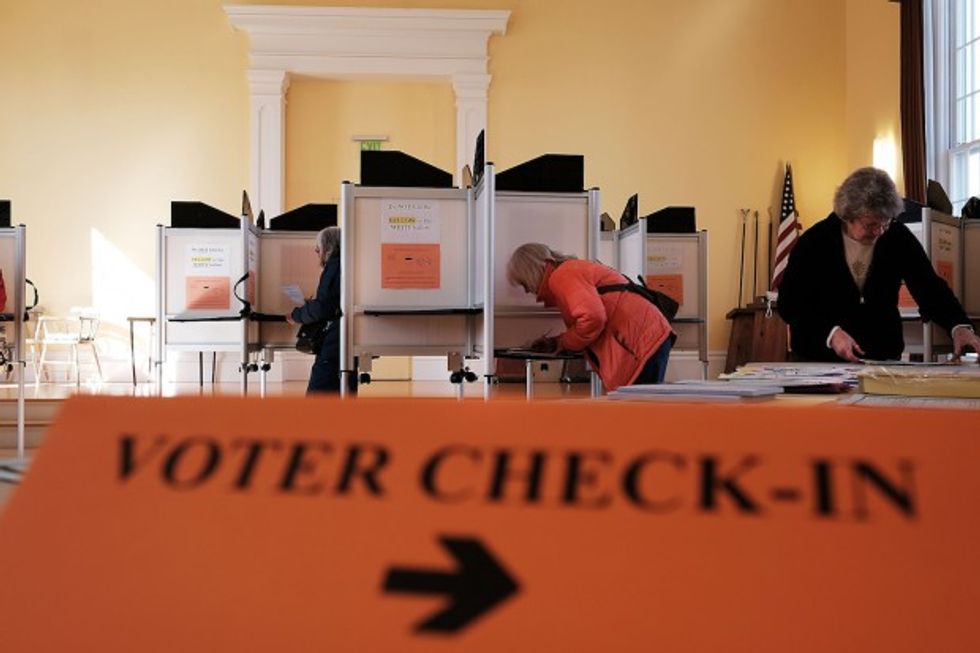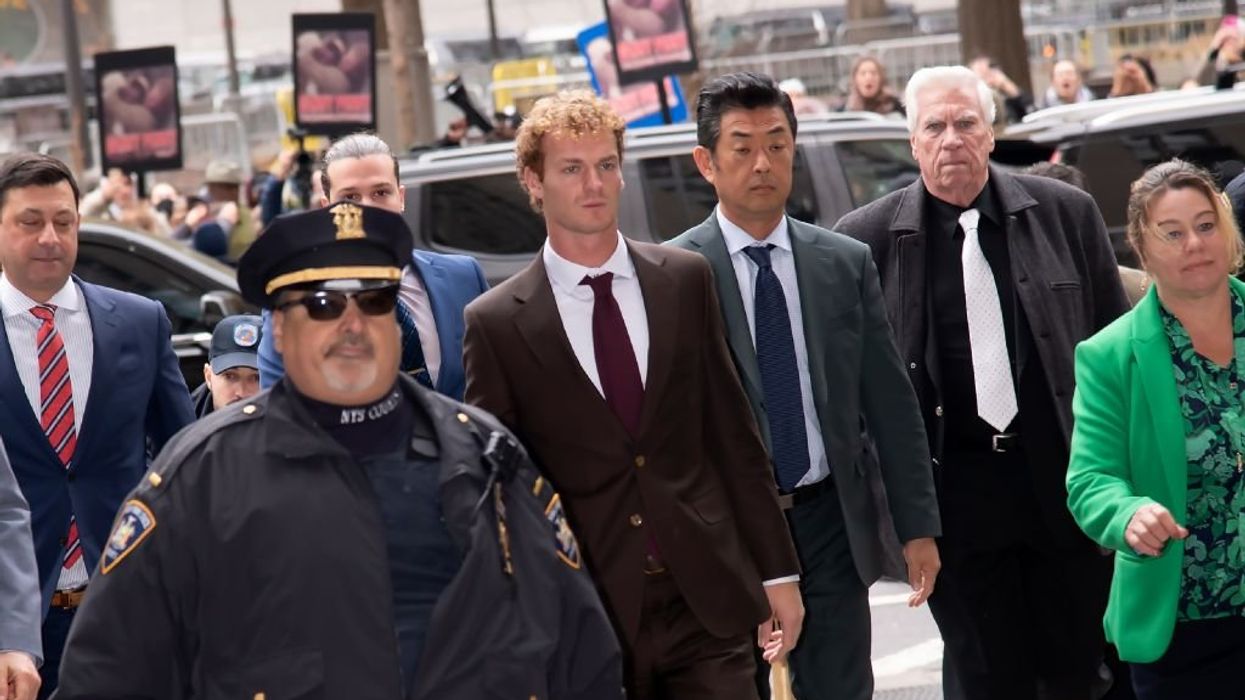
"I Voted" stickers (R) rest on a desk as registered Maryland voters cast their ballots electronically at Ridgeway Elementary School in Severn, Maryland, near Baltimore, 07 November 2006. A recent batch of national public opinion polls gave opposition Democrats an edge in the fight for the Senate and House of Representatives, but some showed a late burst of energy for the president's party. The contest will decide the political landscape for Bush's last two years in office and will shape the 2008 battle to decide his successor. Democrats needed to pick up six of the 33 Senate seats up for grabs to win that chamber and 15 seats to capture the House of Representatives, where all 435 spots were in play. (Jim Watson/AFP/Getty Images)



